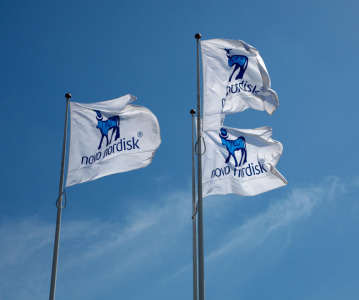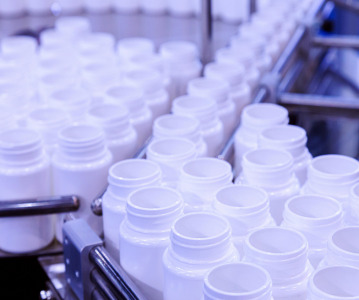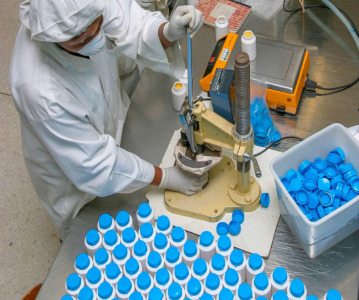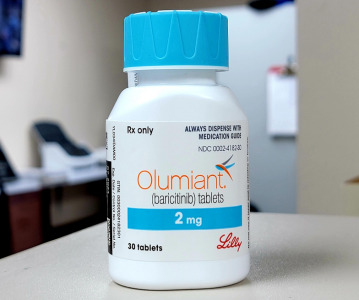UK approves Pfizer and BioNTech vaccine against COVID-19
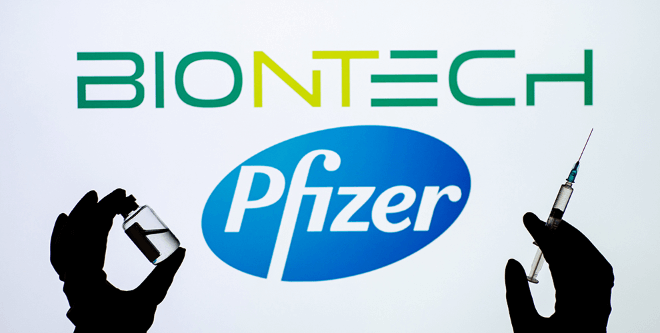
Distribution of vaccine to start as early as next week after MHRA grants temporary emergency use authorisation to mRNA candidate
The UK became the first western country to approve a vaccine against COVID-19 Wednesday after the country’s Medicines & Healthcare Products Regulatory Agency (MHRA) granted a temporary emergency use authorisation to Pfizer and BioNTech’s mRNA candidate, BNT162b2.
UK health secretary Matt Hancock said a programme of vaccination would start as early as next week, when an initial 800,000 doses would be available.
He said each person vaccinated would require two injections and older people and key workers would be first in line for immunisation.
“The goal will be to vaccinate through the NHS right across the UK as rapidly as the company can manufacture,” he told BBC News. “It will help save lives. Once we’ve protected the most vulnerable it will help us all get back to normal and back to some of the things that we love.”
He added that distribution of the vaccine across the UK would be “challenging” given that BNT162b2 needed to be kept at -70C but that a network of 50 hospitals was ready to deliver the first jabs, and specialist vaccination centres were being built.
He said the vaccine would also be available from some doctors and pharmacists who have cold storage facilities.
Pfizer and BioNTech -- who previously signed an agreement to supply a total of 40 million doses of the vaccine to the UK with delivery in 2020 and 2021 -- said they are anticipating further regulatory decisions from other countries in the coming days and weeks and are ready to deliver vaccine doses following any regulatory authorizations or approvals.
“As we anticipate further authorizations and approvals, we are focused on moving with the same level of urgency to safely supply a high-quality vaccine around the world,” said Albert Bourla, Chairman and Chief Executive Officer of Pfizer.
The MHRA said its decision was made with advice from the Commission on Human Medicines (CHM), the government’s independent expert scientific advisory body.
A dedicated team of MHRA scientists and clinicians carried out a rigorous, scientific and detailed ‘rolling’ review of all the available data, starting in October 2020, the agency said in a statement.
A ‘rolling review’ can be used to complete the assessment of a promising medicine or vaccine during a public health emergency in the shortest time possible. This is done as the packages of data become available from ongoing studies on a staggered basis.
Data from a Phase 3 clinical study of the vaccine demonstrated an efficacy rate of 95% in participants without prior SARS-CoV-2 infection and also in those with and without prior SARS-CoV-2 infection, in each case measured from 7 days after the second dose.
Cold-chain infrastructure
Pfizer said it has an established cold-chain infrastructure to supply the vaccine worldwide, including distribution hubs that can store doses for up to six months.
It added that its distribution is built on a flexible just-in-time system that can ship frozen vials quickly to designated points of vaccination at the time of need, minimizing the need for long term storage.
With high-demand vaccination in a pandemic situation expected to be rapid, the company said it did not expect doses would need to be stored at any location for more than 30 days.
Based on current projections, Pfizer and BioNTech said their combined manufacturing network has the potential to supply globally up to 50 million vaccine doses in 2020 and up to 1.3 billion doses by the end of 2021, subject to manufacturing capacity and regulatory approval or authorization.
Critical to distribution in the UK will be Pfizer’s manufacturing site in Puurs, Belgium, one of its largest sterile injectable sites. The site is being used primarily for European supply but will also serve as back up supply to Kalamazoo, Michigan, for the US market.
Through its existing mRNA production sites in Mainz and Idar-Oberstein, Germany, BioNTech said it can produce mRNA for commercial supply after having already produced clinical doses.
BioNTech will also increase its manufacturing capacity in 2021, once a third site in Germany will start manufacturing to provide further capacities for a global supply of the potential vaccine.

Related News
-
News Women in Pharma: Moving beyond discussions and into best practice at CPHI Milan
In this second CPHI Milan special of our monthly series, we cover the key takeaways from the Diversity & Wellbeing track held on October 10, 2024. -
News AstraZeneca invests in AI collaboration for cancer drug trials
The British-Swedish pharmaceutical giant is partnering with biotechnology firm Immunai Inc to increase the efficiency of some cancer drug trials. -
News Ozempic and Wegovy prices questioned as Novo Nordisk faces US Senate hearing
The CEO of Novo Nordisk was grilled during a US Senate committee hearing on September 24, 2024, in which the exorbitant prices of the Danish company’s blockbuster drugs Ozempic and Wegovy were called into question. -
News The BIOSECURE Act: implications for the pharma supply chain
On September 9, 2024, the US House of Representatives voted to pass the bill titled the BIOSECURE Act (the Act), which lists several Chinese companies in the pharmaceutical supply chain. The Act will prohibit American companies from contracting or doin... -
News On Track at CPHI Milan: Thermo Fisher Scientific Track Sponsor interview
With CPHI Milan just around the corner, we sat down with some of the sponsors for this year’s conference tracks to discuss the most pressing topics in pharma. -
News CPHI Milan Speaker Spotlight: Pharma Manufacturing and Localisation in Africa
In the run-up to CPHI Milan, we sit down with some of the experts and thought-leaders speaking at this year’s conferences. -
News US BIOSECURE Act passed by US House of Representatives
The controversial act, which has already impacted several foreign companies operating in the US, was passed by the House of Representatives on September 9, 2024. It is now headed for the US Senate before it can be signed into law by President Joe Biden... -
News Eli Lilly licenses rheumatoid arthritis manufacturing in Africa
American pharmaceutical company Eli Lilly has signed a partnership with Egyptian organisation Eva Pharma to localise manufacturing of rheumatoid arthritis treatments in Africa.
Position your company at the heart of the global Pharma industry with a CPHI Online membership
-
Your products and solutions visible to thousands of visitors within the largest Pharma marketplace
-
Generate high-quality, engaged leads for your business, all year round
-
Promote your business as the industry’s thought-leader by hosting your reports, brochures and videos within your profile
-
Your company’s profile boosted at all participating CPHI events
-
An easy-to-use platform with a detailed dashboard showing your leads and performance

.png)
